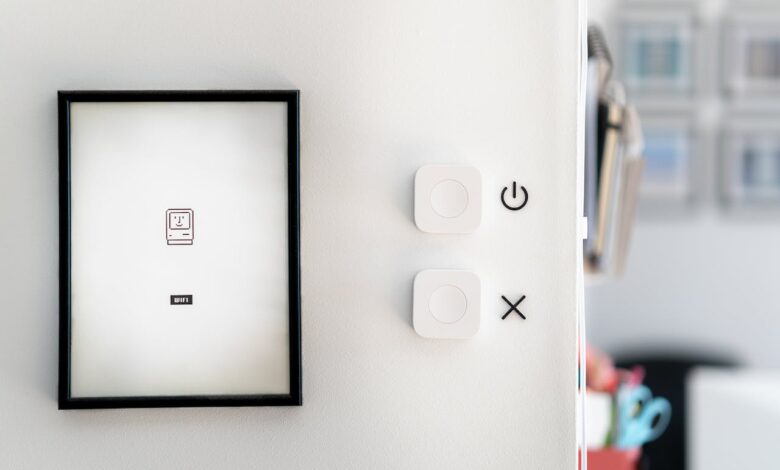
AI is reshaping various industries, and housing projects are no exception. With AI-backed features, you can expect smarter design, improved energy efficiency, and enhanced security, making your living space more efficient and comfortable. These technological advancements open the door to personalized experiences, ensuring that every homeowner’s needs are met.
Imagine living in a home that learns your preferences over time—adjusting lighting, temperature, and even security settings based on your habits. This is becoming increasingly possible thanks to AI, which analyzes data to create tailor-made environments. From predictive maintenance to automated systems, these innovations take the guesswork out of home management.
As you explore AI in housing projects, you’ll discover how these solutions not only save time but also enhance your quality of life. Embracing these advancements paves the way for a future where homes are more than just structures; they become intuitive spaces that support your lifestyle.
AI in Construction Management
When you’re evaluating company housing, it’s essential to focus on specific factors that impact your experience. This website has some of the best options for you to choose from. The right amenities, flexibility in lease terms, and measures for privacy and security play crucial roles in ensuring a comfortable stay.
AI-Enhanced Construction Processes
AI is transforming construction processes by optimizing project management and scheduling. Machine learning algorithms analyze vast data sets to predict potential delays and identify the most efficient workflows. For instance, AI can evaluate past projects to determine optimal labor hours, materials needed, and timelines.
Predictive analytics helps you foresee challenges before they arise. With the information gathered, you can make data-driven decisions that enhance productivity. Additionally, AI-driven tools, like drones and sensors, offer real-time monitoring of construction sites, ensuring that everything stays on track.
Cost Reduction and Resource Allocation
With AI and machine learning, you can achieve better resource allocation and reduce construction costs. AI models assess project data and recommend optimal distribution of materials and labor. This level of data analysis minimizes waste, which translates to savings.
By analyzing trends in housing affordability, emerging markets can be identified, ensuring that your projects meet community needs. Furthermore, implementing AI tools in budgeting helps create more accurate financial forecasts and cost estimates, allowing you to avoid unexpected expenses.
Smart Housing for Better Living
Smart housing integrates innovative technologies to enhance your living experience. With a focus on energy efficiency and improved accessibility, these homes not only make life easier but also promote sustainable living.
Energy-Efficient AI Homes
Energy-efficient homes utilize smart technologies to reduce utility costs. Smart thermostats automatically adjust temperatures based on your habits, while energy monitoring systems track and optimize energy usage.
Key features include:
- Automated lighting: Lights adjust based on occupancy, saving energy when rooms are empty.
- Solar integration: Many homes come equipped with solar panels, which further reduce energy bills.
- Smart appliances: Your refrigerator or washing machine can run during off-peak hours to save even more.
- Secure entry points: Look for properties with keycard access or security personnel monitoring entrances. This can include transformer condition monitoring to ensure that the electricity of the building is also safe.
By making data-driven decisions, these systems help ensure your home remains efficient, comfortable, and environmentally friendly.
Entertainment Opportunities
Consider what entertainment options are available in and around the property. Look for features like:
- Game rooms: Spaces with pool tables, arcade games, or video games can provide a fun break from work.
- Fitness centers: A gym on the premises helps you maintain your routine without needing to travel.
- Community events: Check if the property offers social gatherings, which can help you meet new people.
- Nearby attractions: Being close to restaurants, parks, golf course or theaters adds convenience and fun to your downtime. Learn more about golf courses here.
Having these options can contribute positively to your overall living experience, making it easier to unwind.
Smart Accessibility and Maintenance
Smart housing enhances accessibility through innovative solutions. You can control various features using voice commands or mobile apps, making life easier for everyone, especially those with mobility challenges.
Predictive maintenance algorithms play a crucial role here. They monitor system performance and predict failures before they occur. This proactive approach can save you from costly repairs and ensure your home runs smoothly.
Accessibility features include:
- Voice-activated devices: Control lights, doors, and more effortlessly.
- Smart sensors: Alert you to potential hazards, such as water leaks or temperature changes.
These advancements create a more convenient and safe environment, promoting a better quality of life.
Planning and Development Insights
AI plays a crucial role in enhancing urban planning and modular housing, addressing challenges like demographic shifts and housing affordability. These insights can help you navigate a better approach to meet community needs effectively.
AI in Urban Planning
AI tools can analyze vast amounts of demographic data, helping planners understand population trends. This insight lets you anticipate housing needs, manage resources, and improve infrastructure.
Using predictive analytics, you can identify areas facing a housing crisis before it escalates. For example, AI can adjust zoning regulations based on incoming data about shifts in population density.
Smart algorithms can also optimize traffic patterns, maximizing community efficiency. With real-time data insights, public spaces can be designed more effectively, creating amenities that promote community engagement.
Innovations in Modular Housing
Modular housing offers an innovative solution to the housing affordability crisis. With AI-driven designs, you can customize homes quickly to suit various budgets and preferences.
These homes are built off-site and delivered ready for assembly, speeding up the construction process. This approach minimizes waste and reduces costs, making housing more accessible to diverse demographics.
Using advanced construction technologies, you can achieve eco-friendly designs. Combining energy-efficient materials with smart tech ensures homes are not only affordable but also sustainable.
This modular approach allows for flexible urban planning, adapting easily to changing community needs. As preferences shift, these adaptable structures can seamlessly evolve.
Conclusion
AI-backed features in housing projects represent a significant shift in how homes are designed and managed. These technologies enhance the overall living experience through smart solutions.
Smart homes utilize AI for energy management, security, and personalized environments. Imagine controlling your home’s lighting and temperature with a simple command or app.
Benefits of AI in Housing:
- Increased efficiency: AI systems optimize energy consumption, helping you save on bills.
- Enhanced security: Smart surveillance and alerts keep your home safer.
- Personalization: Tailored experiences for you and your family enhance comfort.
The integration of AI in housing isn’t just about tech; it’s about improving your lifestyle. As these innovations continue to evolve, they’ll offer more advantages for homeowners.
You might find that AI in your home simplifies daily tasks, making life smoother. With ongoing developments, the possibilities for the future are exciting.


